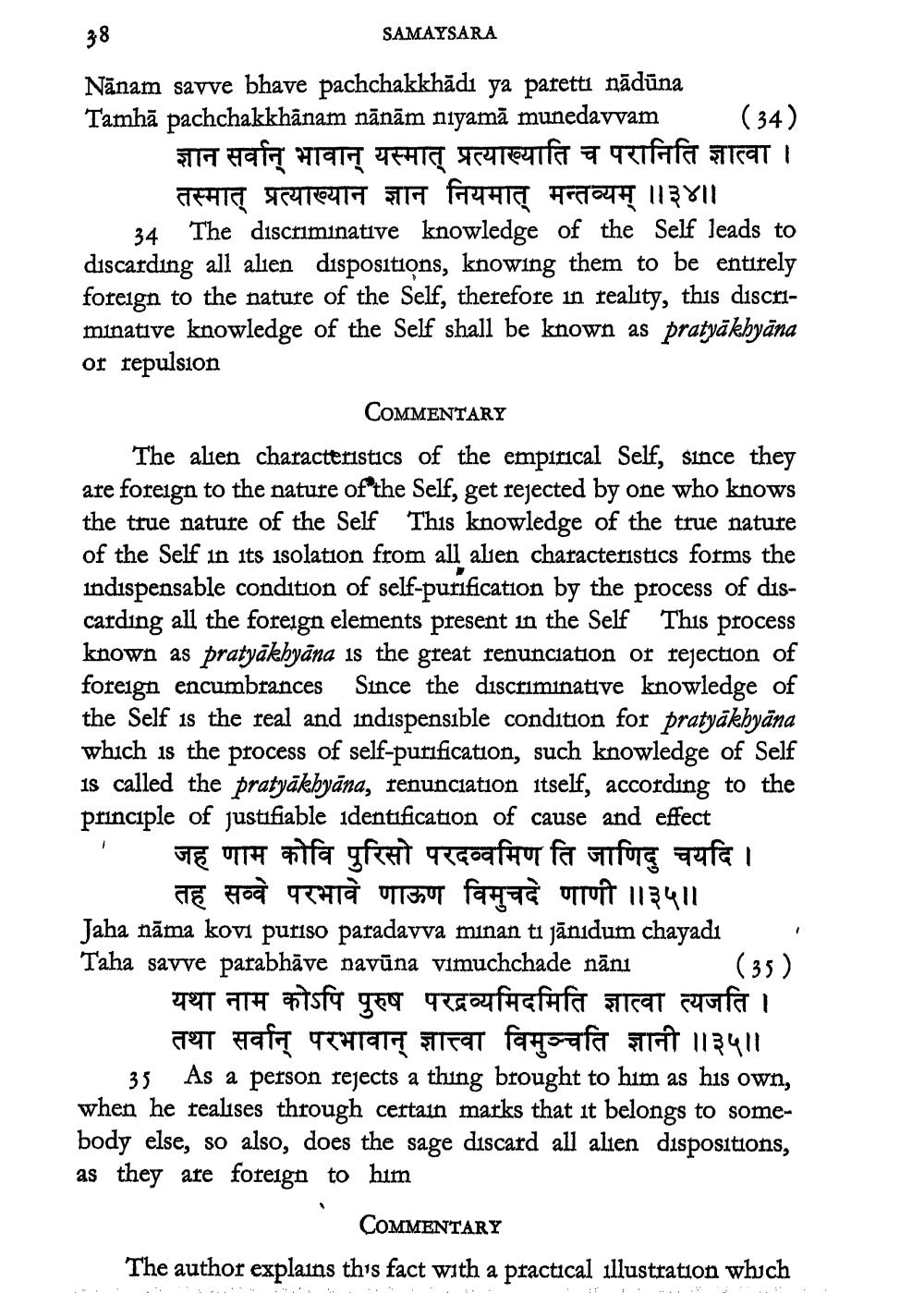________________
38
SAMAYSARA
Nānam savve bhave pachchakkhādı ya parett nādūna Tamhā pachchakkhānam nānām niyamā munedavvam (34)
ज्ञान सर्वान् भावान् यस्मात् प्रत्याख्याति च परानिति ज्ञात्वा ।
तस्मात् प्रत्याख्यान ज्ञान नियमात् मन्तव्यम् ॥३४॥ 34 The discriminative knowledge of the Self leads to discarding all alien dispositions, knowing them to be entirely foreign to the nature of the Self, therefore in reality, this discriminative knowledge of the Self shall be known as pratyākhyāna or repulsion
COMMENTARY
The alien characteristics of the empirical Self, since they are foreign to the nature of the Self, get rejected by one who knows the true nature of the Self This knowledge of the true nature of the Self in its isolation from all alien characteristics forms the indispensable condition of self-purification by the process of discarding all the foreign elements present in the Self This process known as pratyākhyāna is the great renunciation or rejection of foreign encumbrances Since the discriminative knowledge of the Self is the real and indispensible condition for pratyākhyāna which is the process of self-purification, such knowledge of Self is called the pratyākhyāna, renunciation itself, according to the principle of justifiable identification of cause and effect
जह णाम कोवि पुरिसो परदव्वमिण ति जाणिदु चयदि ।
तह सव्वे परभावे णाऊण विमुचदे णाणी ॥३५॥ Jaha nāma kovi puriso paradavva minan ti jānidum chayadı Taha savve parabhāve navūna vimuchchade nāni (35)
यथा नाम कोऽपि पुरुष परद्रव्यमिदमिति ज्ञात्वा त्यजति ।
तथा सर्वान् परभावान् ज्ञात्त्वा विमुञ्चति ज्ञानी ॥३५॥ 35 As a person rejects a thing brought to him as his own, when he realises through certain marks that it belongs to somebody else, so also, does the sage discard all alien dispositions, as they are foreign to him
COMMENTARY The author explains this fact with a practical illustration which




